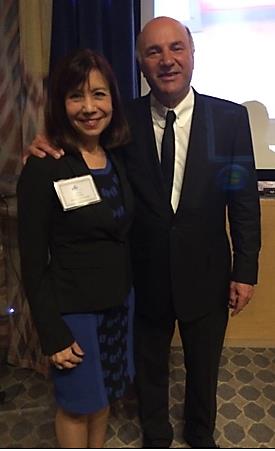 Last month I had the good fortune to hear Kevin O’Leary of Shark Tank speak at a networking event. Unlike typical celebrity events, this venue was intimate, allowing contact with Mr O’Leary and even a photo opp.
After drinks and hors d’oeuvres, we gathered into a small theater-like room to hear him speak. His speaking approach surprised me and I found it refreshing. Instead of the usual PowerPoint, or main stage podium presentation, Mr O’Leary entered the room in an unassuming manner yet strongly communicated executive presence. After being introduced, he stood next to a leather chair, his only prop a wine glass in hand as he told his story.
Last month I had the good fortune to hear Kevin O’Leary of Shark Tank speak at a networking event. Unlike typical celebrity events, this venue was intimate, allowing contact with Mr O’Leary and even a photo opp.
After drinks and hors d’oeuvres, we gathered into a small theater-like room to hear him speak. His speaking approach surprised me and I found it refreshing. Instead of the usual PowerPoint, or main stage podium presentation, Mr O’Leary entered the room in an unassuming manner yet strongly communicated executive presence. After being introduced, he stood next to a leather chair, his only prop a wine glass in hand as he told his story.
He began by telling us about his mother’s influence on how he thinks about his investments today and took us on a journey from his early, hungry years, the “tough love” lessons from his mother, and how he is raising his children based on his own upbringing. He discussed the issue of how to stay grounded after acquiring riches, his decisions and relationships on Shark Tank, his current enterprises, and advice for today’s entrepreneurs. His decisions to do business with partners isn’t contingent on liking them and he was clear about separating personal feelings from business.
Politics was not part of the presentation until the last questioner asked for his opinion on the Presidential election which he answered directly. Ever the salesman, he ended with a call to action. He let the audience know that he owned a vineyard and we could buy his $60 red wine for $10 on QVC.
Mr. O’Leary didn’t miss a beat. He spoke fluently, conversationally, and matter-of-factly, as he wove sage advice through his stories. This was not a speech but a conversation. And the audience loved it! It was interesting how much of the presentation I retained because he made the message memorable.
What I learned was this: The best public speakers stay true to themselves. Kevin O’Leary has a quiet style but was no less captivating than a Tony Robbins. He told his personal story and made a connection with the audience. By sharing business successes and an inside view of SharkTank, he provided real value to an audience of entrepreneurs. He didn’t waffle when asked a political question. He put a stake in the ground. And of course, he told us how to get a discount on his wine. The audience was captivated. And that’s why he’s called Mr.Wonderful.

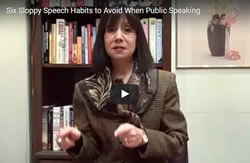
 There are no boring topics-only boring speakers. Just about every audience and coaching client has heard me make that statement about
There are no boring topics-only boring speakers. Just about every audience and coaching client has heard me make that statement about 
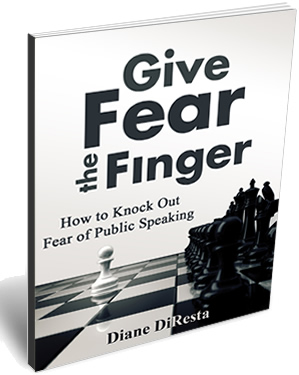 DiResta Communications Recognizes International Women’s Day with Re-Launch of “Give Fear the Finger”
DiResta Communications Recognizes International Women’s Day with Re-Launch of “Give Fear the Finger”  In a Republican debate, Senator Marco Rubio had emerged as a great orator and touted his third place standing as a win. There was a lot of buzz about Rubio and he was riding high despite being number three. So it was no surprise that he walked into the next debate
In a Republican debate, Senator Marco Rubio had emerged as a great orator and touted his third place standing as a win. There was a lot of buzz about Rubio and he was riding high despite being number three. So it was no surprise that he walked into the next debate  Speaking is a leadership skill
Speaking is a leadership skill It's a
It's a 
 What's the one word that's the kiss of death for most presentations? No, it's not BORING. Boring is the outcome.
What makes a presentation boring?
What's the one word that's the kiss of death for most presentations? No, it's not BORING. Boring is the outcome.
What makes a presentation boring?
 Did you ever wonder if there was an Aladdin's Lamp for
Did you ever wonder if there was an Aladdin's Lamp for  Whether you’re a solopreneur or an INC 5000 CEO on the fast track, your ability to present yourself, your company, and your value, will determine the trajectory of your business
Here are three
Whether you’re a solopreneur or an INC 5000 CEO on the fast track, your ability to present yourself, your company, and your value, will determine the trajectory of your business
Here are three 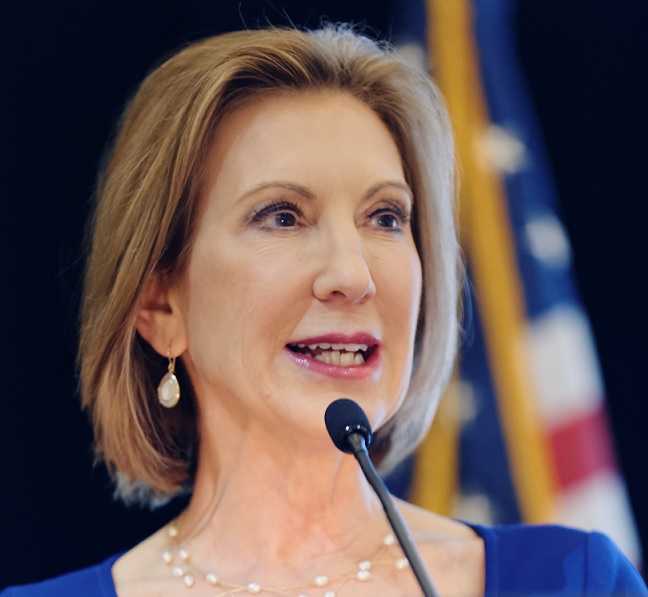
 What if this happened to you? You prepare a presentation, and then the public speaker before you uses up all the time. What if you only had 6 seconds? Would you give a presentation or would you pick up your marbles and go home?
The public speaking game has changed.The digital age requires speed,
What if this happened to you? You prepare a presentation, and then the public speaker before you uses up all the time. What if you only had 6 seconds? Would you give a presentation or would you pick up your marbles and go home?
The public speaking game has changed.The digital age requires speed, 
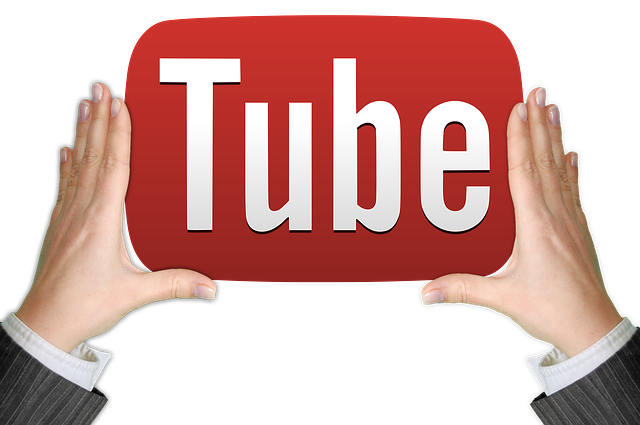 Anthrax isn't the only bacteria we need to worry about. There's a vocal virus that is sweeping the nation.
In the last few days, I've been getting more responses to a video on
Anthrax isn't the only bacteria we need to worry about. There's a vocal virus that is sweeping the nation.
In the last few days, I've been getting more responses to a video on  Do you have a voice? Voice matters. Everyone has a right to express their voice. But you can't do that if you've lost your voice. It's World Voice Day,
a day dedicated to the care of the voice. You use your voice everyday and vocal misuse and abuse are not uncommon. Follow these tips for a healthy voice.
Do you have a voice? Voice matters. Everyone has a right to express their voice. But you can't do that if you've lost your voice. It's World Voice Day,
a day dedicated to the care of the voice. You use your voice everyday and vocal misuse and abuse are not uncommon. Follow these tips for a healthy voice.
 What's more important? Style or Substance? Sizzle or Steak? I ask this question in my public speaking and
What's more important? Style or Substance? Sizzle or Steak? I ask this question in my public speaking and 
 What does Valentine's Day have to do with
What does Valentine's Day have to do with